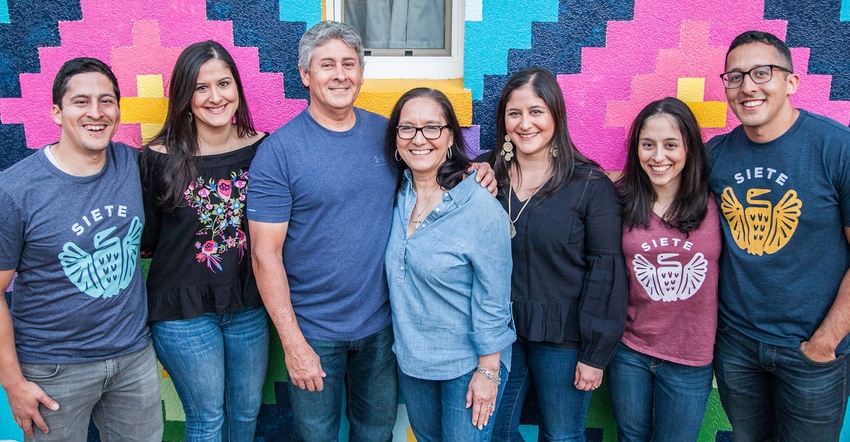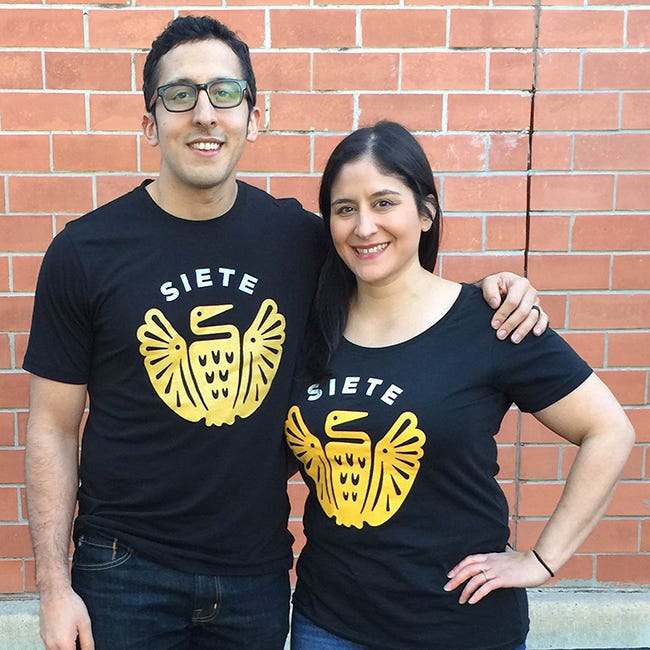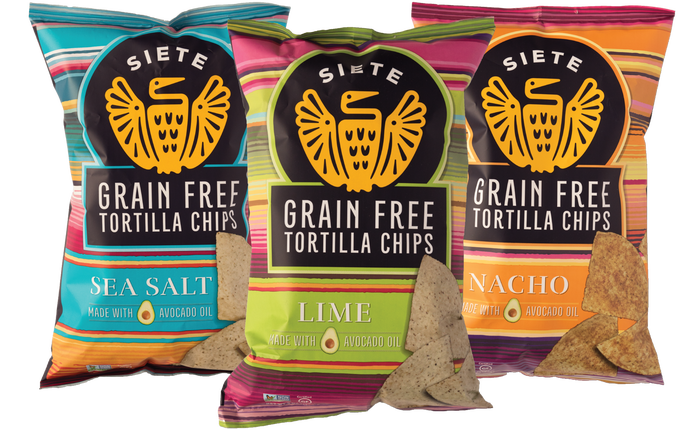A south Texas Latina's desire to find a tasty substitute for flour- and corn-based tortillas blossomed into a free-from brand of tortillas and chips now available across the country.

When she was a teenager, Veronica Garza was diagnosed with lupus, an autoimmune disease that attacks many of the body's systems. When she decided to eliminate grains and gluten from her diet, her Mexican-American family joined her. But lettuce-leaf tacos weren’t cutting it.
Eventually, Garza began making grain-free tortillas. Family and friends—including one of her grandmothers—loved them. When Garza’s youngest brother, Miguel, graduated from law school, he convinced his mother and his sister to turn their tortilla-making vocation into a full-fledged business.
“I want to give a lot of credit to my sister and to my mom, who had already started to sell tortillas to family and friends,” Miguel Garza says. “What I did was help nudge them to make it a business that we could share with a larger audience.” He started by finding a buyer at Wheatsville Food Co-op in Austin, Texas.
Now, six of the seven Garza family members—as well as Miguel’s wife, Alex—work for Siete Family Foods. Its grain-free chips and tortillas can be found in more than 1,000 retailers across the country. Here, Miguel discusses how Siete Family Foods grew into its success.
What did you know about starting a food business, and how did you learn?
Miguel Garza: We really had no idea what it meant to have a food business. We knew some of the basics, like using a commercial kitchen, incorporating and some of those things. We had a cross-fit gym before starting this business. We had to figure out the food as we went. The Wheatsville Food Co-op gives vendors a list of everything they need to do before getting on their shelves. I always credit this with getting us off the ground. We came into understanding that the product tasted really good and there was a customer ready to purchase.
As far as the nuances of getting a food business going, we really had no idea. I think most first-time food entrepreneurs are making a lot of it up as they go.
How did mentors help you grow Siete Family Foods?
MG: The world of business, especially in an age of technological advancement like we’re living through now, shifts pretty dramatically, pretty quickly. Talking to people who have either been in business generally or in the food business specifically provides some insight into pattern recognition that 
Why did you choose the mission of promoting health and wellness among underserved communities?
MG: My sister realized when she was creating this product that it was to solve her own problem—this problem that she could no longer have foods that she culturally and emotionally connected to. The tortilla is the foundation for so many meals we grew up eating. At the same time, we had a gym. The idea behind the gym is that we just wanted people to start moving. We wanted to spread the message that exercise doesn’t have to be boring. We felt like it could be part of a happy, healthy lifestyle.
With the tortillas, we felt that we could extend that mission from the days of running a gym to running a food business. We wanted our business to be helpful. We wanted it to be less about the product and more about helping people through the product we sell.
We want to encourage people to lead healthier lifestyles through food choices and exercise, and we believe in that strongly. And we want to be helpful in the community. We settled on the mission because it felt more authentic to how we wanted to help. So we’ve partnered with different organizations here in Austin to be advocates for health and wellness among underserved communities.
As you’ve said, tortillas are a basic part of the food culture in south Texas and among Mexican-Americans. How did you get this community to accept grain-free, gluten-free tortillas?
MG: My sister would say that, when she was creating the product, her friends and family were asking her to make more of it because it just tasted good. When food tastes good, the free-from product 
What are the positives and negatives of working with your family?
MG: It’s filled with a lot of positives. We get to see each other every day. We implicitly trust each other. I could list off many things. You get to work with people that you love. I don’t necessarily think there are negatives. We face similar challenges that any business faces, especially in this industry. I don’t think they would be isolated to us being a family.
We know what we signed up for, and we’re all in. My wife works at the company as well. We’re talking about work up until the time we go to sleep. It can be overwhelming at times. But when you’re trying to build something that has a major impact on people’s lives and a lasting impact on an industry, you have to put forth that kind of work.
We follow our first core value, which is, “Family first, family second, business third.” We’ve all decided to abide by that.
About the Author(s)
You May Also Like




